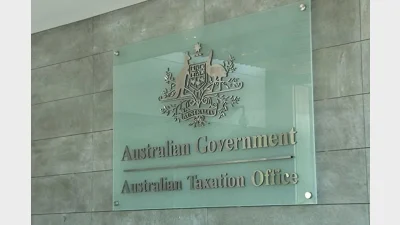(May-2003) Trustee beware
Super fund director in breach of statutory duty
In the matter of QLS Superannuation Pty Ltd v Parker [2003] FCA 262, the Federal Court recently ruled that a former super fund director contravened his statutory duties under the Corporations Law to act honestly and with the relevant degree of care and diligence in relation to investments in commercial loans.
In 1997, QLS Superannuation (QLS) as the corporate trustee of the Law Employees’ Superannuation Fund, conditionally approved a $2.5 million commercial loan to the operator of a Gold Coast childcare centre to refinance existing borrowings. The loan, representing 14 per cent of QLS’s entire assets, was introduced by the defendant, Mr Parker, who was also a director of QLS. However, he did not participate in the board’s decision to approve the loan because of his declared conflict of interest but he did not fully disclose that he was to receive a 2 per cent success fee from the borrower.
At the time of the loan’s approval, the trustees were also aware that one of their two other existing loans of $1 million (also introduced by Mr Parker) was in default. Despite this, the trustees did not seek any advice from consultants experienced in commercial lending or employ any detailed procedures to prudentially assess the creditworthiness of loan applicants.
Nevertheless, the board approved the loan on the condition that an independent valuation of the property and independent verification be obtained in relation to key business indicators before settlement. However, Mr Parker subsequently advanced the loan money without ensuring that these conditions were satisfied.
The court held that Mr Parker, in the exercise of his powers and the discharge of his duties as an officer of QLS, contravened s 232(4) of the Corporations Law by submitting to the board his proposal to make the loan without taking proper care to obtain information as to the borrower’s repayment performance under his existing loans. In addition, he was also in breach of his statutory duty by failing to ensure that the board’s conditions of approval were satisfied before advancing the money, in that, he failed to obtain:
n independent verification before settlement of the key business indicators;
n an independent valuation on behalf of QLS which valued the property according to the asset and land value, income yield and cost to refit and re-let; and
n verification by an appropriate accountant of the reasonableness of the borrower’s profit and loss statements.
Interestingly, the court noted that Mr Parker was also bound by s 52(8) of the SIS Act to exercise a reasonable degree of care and diligence for the purpose of ensuring QLS satisfied its statutory covenants. As a result, the court considered that the fiduciary duties on Parker as a director required of him a higher standard of care and diligence in performing his duties than is the nature of the fiduciary duty on a director of an ordinary trading company.
This matter serves as a warning to trustees contemplating investments in commercial loans or other specialised investments (for example, commercial property or hedge funds) to ensure they have the required skills and detailed procedures to carefully assess and manage such investments. Nonetheless, in future, trustees will need to demonstrate such proficiency in their Risk Management Strategies under the trustee licensing requirements proposed by APRA.
Acquisition of assets from fund members
A key investment restriction on trustees of regulated superannuation funds is that they must not intentionally acquire an asset from a related party of the fund (such as an employer-sponsor, a member or a relative) except in limited circumstances.
Further, to avoid parties circumventing this restriction via the use of interposed companies or trusts, an anti-avoidance provision in s 66(3) of the SIS Act prohibits a party from intentionally entering into a “scheme” which has the effect of avoiding the general prohibition on the acquisition of assets.
In Lock v FCT [2003] FCA 309, two super funds were held to be non-complying as a result of entering into schemes to avoid the prohibition on funds acquiring property from fund members. The court held that the series of transactions in which the super funds invested via an interposed unit trust which had earlier acquired property from the super fund’s members, were designed and planned in advance and clearly constituted schemes under s 66(3).
Significantly, the court rejected the applicant’s submission that s 66(3) did not apply to the transactions as they took place prior to the fund becoming regulated. The court considered that although the scheme commenced before the applicants became trustees, s 66(3) also extends to carrying out a scheme “or any part of it”.
— Stuart Jones is a tax writer at Australian Tax Practice. E-mail: [email protected]
Recommended for you
The industry fund has called on ASX 300 companies to strengthen priorities around resilience, climate, and gender, while itself facing criticism over fossil fuels.
Industry fund HESTA has filed an appeal against an ATO decision on tax offsets from franking credits, with the Australian Retirement Trust set to file a similar claim soon.
The latest superannuation performance test results have shown improvements, but four in 10 trustee-directed products continue to exhibit “significant investment underperformance”, warns APRA.
The corporate regulator has launched civil proceedings against Equity Trustees over its inclusion of the Shield Master Fund on super platforms it hosted, but other trustees could also be in the firing line.











